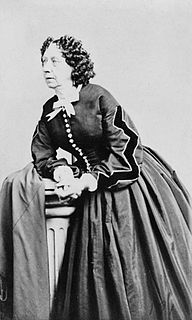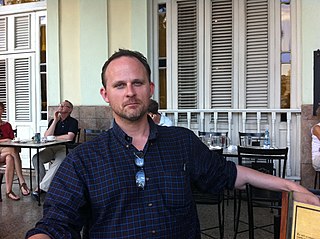A Quote by Fanny Fern
When a literary person's exhaustive work is over, the last thing he wishes to do is to talk books.
Related Quotes
That literary-popular distinction is, in my view, vastly overstated. At the far poles there are clearly books that are purely commercial and purely literary, written for audiences that want to see the same thing enacted over and over and over again. But the middle is where most people read and most people write.
Only idiots or snobs ever really thought less of 'genre books' of course. There are stupid books and there are smart books. There are well-written books and badly written books. There are fun books and boring books. All of these distinctions are vastly more important than the distinction between the literary and the non-literary.
[Michael] Chabon, who is himself a brash and playful and ebullient genre-bender, writes about how our idea of what constitutes literary fiction is a very narrow idea that, world-historically, evolved over the last sixty or seventy years or so - that until the rise of that kind of third-person-limited, middle-aged-white-guy-experiencing-enlightenment story as in some way the epitome of literary fiction - before that all kinds of crazy things that we would now define as belonging to genre were part of the literary canon.
Every few seconds a new book sees the light of day. Most of them will just be a part of the hum that makes us hard of hearing. Even the book is becoming an instrument of forgetting. A truly literary work comes into being as its creator's cry of protest against the forgetting that looms over him, over his predecessors and his contemporaries alike, and over his time, and the language he speaks. A literary work is something that defies death.
I would be wonderful with a 100-year moratorium on literature talk, if you shut down all literature departments, close the book reviews, ban the critics. The readers should be alone with the books, and if anyone dared to say anything about them, they would be shot or imprisoned right on the spot. Yes, shot. A 100-year moratorium on insufferable literary talk. You should let people fight with the books on their own and rediscover what they are and what they are not. Anything other than this talk.
I know that the last thing a book wants is to just sit around unread, serving as an element of interior decorating. So when I have people over, all they have to do is glance at my books, and I implore them to take a few home with them. If I am really ambitious, I pack books into boxes and donate them to prisons.
To vest a few fallible men — prosecutors, judges, jurors — with vast powers of literary or artistic censorship, to convert them into what J. S. Mill called a "moral police," is to make them despotic arbiters of literary products. If one day they ban mediocre books as obscene, another day they may do likewise to a work of genius.







































